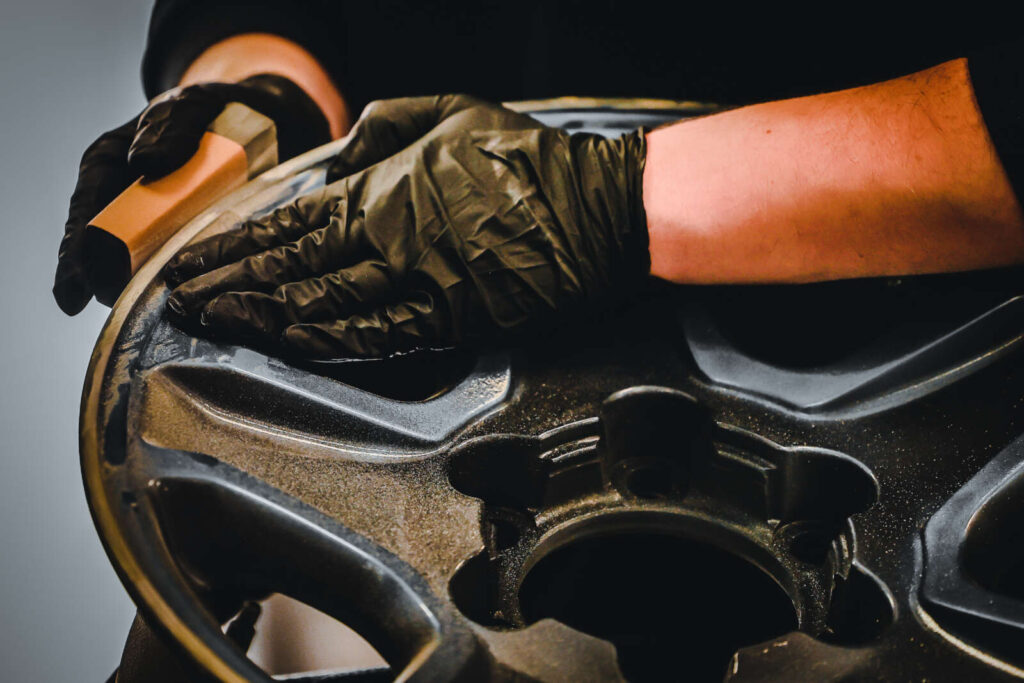Alloy wheels are a popular choice for car enthusiasts due to their stylish appearance and improved performance. However, despite their durability, alloy wheels are susceptible to damage from curbs, potholes, and general wear and tear. When your prized wheels become scratched, dented, scuffed, or bent wheels, bent rims, it’s essential to address the issues promptly with rim repair at a repair shop to maintain the aesthetics and functionality of your vehicle. In this comprehensive guide, we will explore the world of alloy wheel repair, covering various repair techniques, common damages, do-it-yourself approaches, and professional services.
Common Alloy Wheel Damages
Before delving into the repair methods, it is crucial to understand the different types of damages that can occur to alloy wheels. The most common damages include:
Curb Rash
Curb rash refers to the scuffing or scraping of the wheel’s outer edge caused by contact with curbs or other hard objects.
Scratches and Scuffs
These superficial damages can occur from road debris, abrasive cleaners, or improper wheel cleaning techniques.
Dents
Dents can be the result of impacts from potholes, road debris, or accidents.
Corrosion and Oxidation
Over time, exposure to moisture, salt, and harsh chemicals can cause corrosion and oxidation, leading to unsightly blemishes on the wheels.
Bent or Cracked Wheels
Severe impacts can cause the wheel to bend or even crack, affecting its structural integrity.
Do-It-Yourself Alloy Wheel Repair
For car owners who prefer a hands-on approach, certain minor alloy wheel damages can be repaired at home. Here are some do-it-yourself techniques to repair the wheel:
Cleaning and Preparation
Thoroughly clean the damaged wheel using a gentle wheel cleaner and a non-abrasive brush. Remove any loose dirt, grime, or brake dust from the surface.
Scratch and Scuff Repair
For superficial scratches and scuffs, start by sanding the affected area using fine-grit sandpaper. Then, apply a matching touch-up paint to the damaged area, following the manufacturer’s instructions. Finish by applying a clear coat to blend the repair with the rest of the wheel.
Curb Rash Repair
To repair curb rash, start by sanding down the affected area to smooth out the damage. Fill any deeper gouges with a suitable alloy wheel filler. After drying, sand the filled area, gradually moving to finer grits of sandpaper. Finally, prime and paint the repaired area, matching the color of the wheel.
Corrosion and Oxidation Removal
Use a mild wheel cleaner and a soft brush to remove surface corrosion and oxidation. For more stubborn cases, you can use a dedicated alloy wheel cleaner or a mixture of baking soda and water. After cleaning, protect the wheels by applying a wheel sealant or wax.
Professional Alloy Wheel Repair Services
In cases where the damages are extensive or the do-it-yourself approach seems challenging, it’s advisable to seek professional alloy wheel repair services. Professionals have the expertise, specialized tools, and techniques to restore your wheels to their original condition. Here are some common professional repair methods:
Wheel Refinishing
This process involves removing the damaged wheel finish, repairing any imperfections, and applying a new coating. Professionals can match the exact color and finish of your wheels, giving them a factory-like appearance.
Wheel Straightening
Bent or warped wheels can be straightened using hydraulic presses or specialized machinery. This process ensures the wheel’s structural integrity and prevents vibration issues while driving.
Welding and Crack Repair
In cases of cracked wheels, professional welders can repair the cracks using specialized techniques. This restores the wheel’s strength and prevents further damage.
CNC Machining
CNC (Computer Numerical Control) machining is used to repair wheels with deep scratches, gouges, or curb rash. It involves precision cutting and shaping to remove damaged areas and create a smooth surface.
Here are some frequently asked questions (FAQs) regarding alloy wheel repair:
What is alloy wheel repair?
Alloy wheel repair involves fixing any damage or imperfections on alloy wheels, which are made from a combination of aluminum and other metals. The process may include repairing curb rash, scratches, dents, or other types of damage.
What causes damage to alloy wheels?
Alloy wheels can be damaged due to various reasons, including curb or pothole impact, accidents, improper handling, harsh road conditions, corrosive substances, or general wear and tear over time.
Can all types of wheel damage be repaired?
Many types of wheel damage can be repaired, including minor scratches, scuffs, and dents. However, severe structural damage or cracks may require wheel replacement instead of repair.
How is alloy wheel repair performed?
The repair process varies depending on the extent and type of damage. Typically, it involves cleaning the wheel, sanding or grinding down the damaged area, filling in any gaps or scratches with specialized materials, smoothing the repaired surface, and refinishing the wheel to match the original appearance.
Can I repair alloy wheels myself?
While minor cosmetic repairs can be done at home using DIY repair kits, it’s generally recommended to seek professional help for more significant damage. Alloy wheel repair requires specific tools, skills, and expertise to achieve quality results and ensure the structural integrity of the wheel.
How long does alloy wheel repair take?
The time required for alloy wheel repair depends on the extent of the damage and the repair process involved. Minor repairs can usually be completed within a few hours, while more extensive repairs may take a day or longer.
How much does alloy wheel repair cost?
The cost of alloy wheel repair varies depending on factors such as the extent of the damage, the type of wheel, the repair technique used, and the service provider. Generally, repairs for minor damage are less expensive compared to major repairs or wheel replacements.
Will the repaired wheel look as good as brand new?
A professional alloy wheel repair service can often restore the damaged wheel to its original appearance or very close to it. Skilled technicians use specialized techniques and color-matching processes to ensure a seamless finish.
Can alloy wheels be repaired multiple times?
Alloy wheels can be repaired multiple times, depending on the severity of the damage and the condition of the wheel. However, there may be limitations to the number of repairs that can be done before it becomes more cost-effective to replace the wheel.
Can I drive my car immediately after wheel repair?
In most cases, you can drive your car immediately after alloy wheel repair. However, it’s advisable to follow any specific instructions provided by the repair technician to ensure the repaired wheel sets and cures properly.
Alloy Wheel Repair Specialists
Alloy wheel repair is essential for maintaining the appearance and performance of your vehicle. Whether you choose to tackle minor damages yourself or opt for professional services, addressing the issues promptly will help preserve the value and longevity of your rims and tires. Remember to regularly clean and protect your wheels to minimize future damage. By following the techniques and methods outlined in this guide, you can restore your alloy wheels to their former glory and enjoy a safe and stylish ride for years to come.



